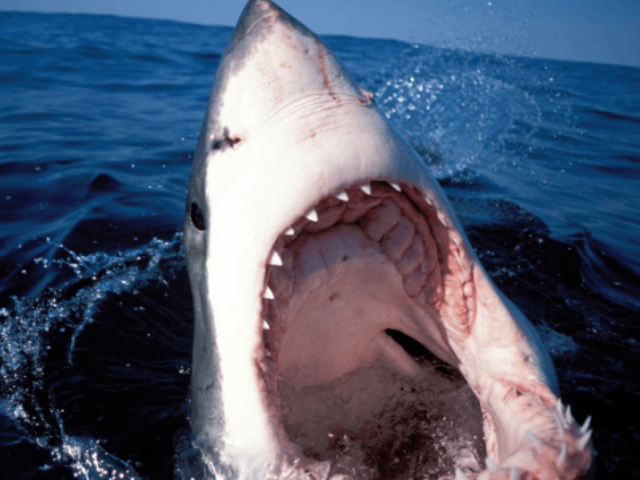Officials in Queensland and New South Wales (NSW) are signaling a move away from describing dangerous encounters between sharks and humans as “attacks,” according to the Sydney Morning Herald.
The article published Wednesday continued:
A senior Queensland official told a Noosa shark symposium in May the state’s communications would preference “bites” over “attacks” based on social research, three scientists attending the meeting have told The Sydney Morning Herald and The Age. Its SharkSmart website lists how to minimise risks “of a negative encounter with a shark.”
In NSW, the Department of Primary Industries has also gradually moved from dubbing shark-human contacts as “attacks” in its annual reports. It has worked closely with Bite Club, a support group for survivors to inform its language.
“NSW DPI is respectful that each incident is best described by the individual involved,” a spokeswoman explained, adding, “DPI generally refers to ‘incidents’ or ‘interactions’ in our formal shark reporting.”
Word choice is important since public fears regarding beach safety can be increased by language from politicians and the media, according to Leonardo Guida, a shark researcher at the Australian Marine Conservation Society.
The shift in language matters “because it helps dispel inherent assumptions that sharks are ravenous, mindless man-eating monsters”, Dr. Guida claimed.
According to the National Oceanic and Atmospheric Administration (NOAA), most sharks pose no danger to humans because they are not part of their natural diet.
However, “Sharks have been known to attack humans when they are confused or curious. If a shark sees a human splashing in the water, it may try to investigate, leading to an accidental attack,” the agency said.
Authorities should not scrub “attack” from the language used to describe incidents involving sharks and humans, a spokesman for Bite Club told the Herald on Thursday.
“You can’t sanitise it too much,” Dave Pearson said.
Pearson suffered severe arm injuries a decade ago when he was bitten by a bull shark.
“It’s not like there’s a tap on the shoulder from a shark saying, ‘do you mind if I eat you?'” he noted.

COMMENTS
Please let us know if you're having issues with commenting.